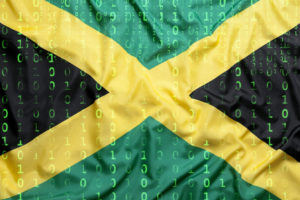In a speech to the nation last Friday (13th of March), Prime Minister Andrew Holness issued the Disaster Risk Management (Declaration of Disaster Area) Order 2020 declaring the whole of Jamaica a disaster area due to the increasing spread of COVID-19. Further, in light of a number of persons presenting with flu-like symptoms who came into contact with a person known to have the disease, and to prevent community spread, a decision has been taken by the government to quarantine for 14 days, the communities in Seven Miles and Eight Miles, Bull Bay, bordering St. Andrew and St. Thomas.
Guidance for Businesses
Notwithstanding Minister of Tourism Edmund Bartlett’s optimism that travel and tourism will recover quickly from this period, it is acknowledged that the commercial activities falling within his portfolio, plus others such as manufacturing, trade, retail, and the financial markets are likely to be hit quite hard. The repercussions, though unknown, are potentially huge, and a slowdown of the economy will eventually filter down to lower consumer spending. Along with health risks brought by the disease, job risks, and potential business shutdowns may also be on the horizon if the virus is not contained or becomes a protracted problem.
There is little official guidance for businesses, which is understandable as the situation changes daily. This note touches on six key legal issues for business owners to consider immediately.
1. Your duties as an employer.
Employers have a duty under health and safety legislation to ensure the health, safety, and welfare of all their employees, so far as reasonably practicable. As the number of infections becomes more widespread, employers are likely to implement work from home capability where the work-tasks are suitable and where employees are fit enough to carry out work whilst self-isolating. Enabling remote working would mean that employees would be paid their normal wages for the period they are carrying out work. This may involve upgrading IT systems and, in some cases, facilitating workers with appropriate equipment.
Other flexible work arrangements such as job-sharing or staggered working can also be considered. We understand that some financial institutions in other countries have split their critical operation teams and located them on different floors or locations, just so that the entire team does not become debilitated in one go.
Should your business not lend itself to being one that can be operated remotely or flexibly, and if you are required to either send employees with symptoms home, difficult questions about paying wages will need to be addressed. It is unlikely that the Jamaican government will be in a position to provide pandemic relief and support packages like those that have been announced in other countries such as Germany, the UK, and the USA.
On questions about sick leave in the workplace, what follows are some Human Resources Management Association of Jamaica (HRMAJ) recommendations you could consider:
(a) Whilst normal sick leave is to be applied according to the law, consideration might also be given to allow employees to utilize unused portions of sick leave entitlement from previous periods.
(b) Employees be allowed to submit medical certifications for COVID-19 after safe-return to work or 10 working days, whichever is earlier.
(c) Special leave be provided for employees who are under imposed quarantines or self-isolation orders.
(d) Special family leave entitlements could be provided for well-care check-ups or care of the employee’s spouse, children or parents, or a person for whom the employee is a caretaker or when the employee’s presence is necessary.
Remember, these are recommendations, not legal requirements, and thus are entirely within an employer’s discretion.
2. The duties of your employees.
Employees have a duty to take reasonable care of their health and safety and that of people they work with. They must cooperate with their employer to enable it to comply with its duties under health and safety legislation. Employees who refuse to cooperate, or who recklessly risk their health or that of their colleagues and/or customers/clients, may not only be disciplined where appropriate for their disobedience, but can also be the subject of complaint under the Public Health Act and its regulations and under the Quarantine Act.
3. Masks, gloves and sanitizers.
On the question of whether employees should be required to wear masks to protect themselves from infection, and whether employers are obligated to provide them, it was just announced that the wearing masks and the using of gloves is not as effective and gives a false sense of security in the fight against Coronavirus (https://jis.gov.jm/st-james-medical-officer-of-health-says-wearing-face-masks-not-effective/)
Employees are thus not required to wear facemasks to protect against the virus other than in health care settings or where protective face masks might help employees working in particularly vulnerable situations. Face masks are only recommended to be worn by symptomatic individuals (advised by a healthcare worker) to reduce the risk of transmitting the infection to other people.
Nonetheless, it would be good practice for business owners to arrange for additional cleaning in high volume touch areas and where possible provide sanitation points and alcohol gels for employees and visitors to use.
4. Laying off employees or reducing work hours.
Whilst there is a general right to tell most employees not to turn up for work if the situation escalates, there is no general right not to pay them simply because work is unavailable.
Laying off employees can only be done under an agreement covering the issue between the company and the union, or with the employee directly. But such an agreement must be incorporated into an employee’s contract for it to have any force. Without it, any attempt to impose layoffs will give rise to potential claims for breach of contract, unlawful deductions and constructive dismissal.
In some cases, employees may be asked to operate reduced hours. Here again, businesses cannot simply impose shorter hours on an employee without their agreement. Any change to an employee’s hours of work can only take place where there is agreement on both sides and preferably inked in writing.
Should the situation worsen business owners are forced to severely close some operations or the entire business altogether, appropriate notice by the employer must still be given and salaries paid. Seek professional advice before considering any layoffs or alterations to terms in employee contracts due to a business downturn.
5. Interruption to your supply chain.
Should your business be reliant on goods and services supplied by external parties, you need to be prepared that your operations will become affected if they are also affected. Your ability to claim refunds, compensation or damages for non-performance of the contracts with your suppliers will depend on the contracts you have signed with them.
It may be pertinent also to check any business insurance policies that you have in place or talk to your insurance provider about adequate cover for business disruption in the future.
6. Non-performance of your existing contractual obligations
Where you are unable to perform or fulfil a contract the starting point is to examine all the relevant clauses as most business contracts will contain a force majeure clause. The functionality of this clause is however problematic and caselaw throughout the years have confirmed that the proper approach to interpreting a force majeure clause is by reference to the actual words the parties have used, not their general intention.
It will, therefore, be necessary to review the drafting of the specific clause and analyze whether there is a basis for construing the clause as including a pandemic. And even if a force majeure clause is triggered, this may not lead to a right to terminate the contract, but simply a right to delay performance by the duration of the unexpected event.
Should your contracts be silent on force majeure, the concept cannot be implied into the contract just because of the exceptional circumstances surrounding the pandemic. Without an express force majeure clause, the common law doctrine of frustration may provide relief, but this doctrine too has its limitations. The Government has created a dedicated website page to post all the latest news on the topic and best practices to follow, so do read this to keep yourself updated. The page can be found here: https://jis.gov.jm/jamaica-and-the-coronavirus/
The information provided in this article does not, and is not intended to, constitute legal advice. If you have particular concerns regarding this or any other subject matter that you wish to have addressed, please contact an attorney so that your specific concerns may be evaluated.




